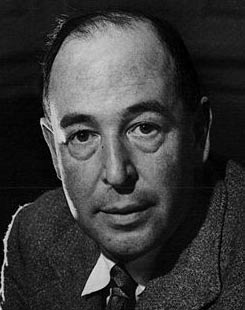C. S. Lewis – Christian Giant Who Came “Kicking, Struggling, Resentful”

Intro
To many, the name C. S. Lewis is synonymous with The Chronicles of Narnia series of seven fictional novels with subtle Christian themes and principles. Narnia has sold over 100 million copies worldwide. That will increase with the more recent BBC and Disney movie adaptations.
To others, C. S. Lewis is a leading twentieth century theological writer of many volumes on the principles of the Christian faith, presented in varying, creative, sometimes fictional, sometimes prophetic idioms. The Screwtape Letters and Mere Christianity, both of which I own and have read so often they are falling apart, are among his more famous works.
There are several biographies, long and short, to be found on the internet.
I have selected two short articles that give a glimpse of the biography and accomplishments of Clive Staples (Jack) Lewis.
Here is a small piece from one of these articles to get us started.
Excerpt from Who is C. S. Lewis? by Emille Griffin, explorefaith.org
Clive Staples Lewis—known to his friends and family as “Jack”—is one of the most influential writers on Christian faith of the twentieth century. Author of more than 70 titles, including works of science fiction, fantasy, poetry, letters, autobiography and Christian apologetics, Lewis’s book sales are reported to be more than 2 million annually. That number promises to skyrocket with the release of Walden Media’s new screen version of Lewis’s The Lion, the Witch and the Wardrobe.
Here is the shorter bio article from biographyonline.com
C.S. Lewis Biography
 C.S. Lewis was an author, essayist and Christian apologist. He is best known for his children’s classic series – The Chronicles of Narnia.Clive Staples Lewis was born on 29 November 1898 and lived until 22 November 1963. He was born in Belfast, North Ireland into a protestant Ulster family. Throughout his life he retained strong roots to Ireland. He sought out the company of the Irish took an active interest in Celtic literature and myths. He was a keen admirer of the works of W.B.Yeats, at a time when he was relatively unknown in England.
C.S. Lewis was an author, essayist and Christian apologist. He is best known for his children’s classic series – The Chronicles of Narnia.Clive Staples Lewis was born on 29 November 1898 and lived until 22 November 1963. He was born in Belfast, North Ireland into a protestant Ulster family. Throughout his life he retained strong roots to Ireland. He sought out the company of the Irish took an active interest in Celtic literature and myths. He was a keen admirer of the works of W.B.Yeats, at a time when he was relatively unknown in England.
After a variety of private tuition and public schools such as Malvern in Worcestershire, in 1916, C.S. Lewis was offered a scholarship at University College, Oxford University. He was an excellent scholar gaining a triple first (the top degree in three different degrees). However, in 1917, his university life was interrupted as he volunteered to join the British army in the First World War. He was transferred to the Somme valley where he took part in trench warfare.
In the last months of the war, he was injured by a shell and was sent home to recuperate from his injuries. During his period of convalescence he became increasingly friendly with Mrs Moore – the mother of a close army friend Edward ‘Paddy’ Moore. He was very close to Mrs Moore, often referring to her as his mother until her death in the 1940s.On returning to Oxford, C.S.Lewis completed his degrees before taking up a post teaching English at Magdalen College, Oxford from 1925 to 1954. He was a prolific writer and formed a close friendship with other Oxford fellows such as J. R. R. Tolkien, Charles Williams, and Owen Barfield. They formed an informal group known as the inklings. They would meet at pubs in Oxford such as ‘The Eagle and Child’ where they would read parts of their novels. He would encourage Tolkien as he wrote his epic Lord of the Rings.
C.S. Lewis and Christianity
C.S.Lewis was brought up in the Protestant Church of Ireland, but as a teenager he said he lost his faith – turned off by boring church services and the problem of evil in the world. However, after returning to Oxford in the post war period, he became increasingly perplexed by the existence of God and Christianity. After many evening chats with friends such as J.R.R.Tolkien and Hugo Dyson, C.S.Lewis finally converted to belief in God (theism) in 1929 and became a Christian in 1931. C.S. Lewis later wrote he felt a reluctant and unwilling convert. But, felt compelled to accept evidence of faith. In his writings of Surprised by Joy: He writes he came into Christianity, “kicking, struggling, resentful, and darting his eyes in every direction for a chance to escape.”
C.S.Lewis became an influential apologist for Christianity through publications such as the Screwtape letters. He concentrated on a more universal form of Christianity seeking to avoid the sectarianism that was common in his native Northern Ireland. He rarely made any specific reference to a particular denomination of Christianity but sought to reinforce the underlying Christian values shared by all Christian faiths. However, he always remained an Anglican, and to the disappointment of Tolkien, he never converted to Roman Catholicism. His Christian beliefs also influenced his more popular works such as the Chronicles of Narnia. Though he also includes ideas of Roman and Celtic myths, there are underlying Christian notions of sacrifice and Christ like actions.
After the Second World War, C.S.Lewis became increasingly close to Joy Gresham a Jewish convert to Christianity who would divorce her alcoholic husband, the writer, William Gresham. Joy later moved to Oxford and the two gained a civil marriage contract enabling Joy to live in the UK. C.S.Lewis very much enjoyed the company of Joy, finding an ideal partner to share his intellectual and spiritual interests. Joy Gresham died from cancer in 1957. Their love story has been romanticised in the popular film – Shadowlands.
C.S.Lewis died a few years later in 1963 from renal failure. His death occurred on same date as the assassination of J.F. Kennedy.Since his death, his books and influence have continued to grow. He has been rated as one of the top English writers of all time and his books have been translated into numerous languages.The above bio is found at http://www.biographyonline.net/writers/c-s-lewis.html.
Lewis’ transition to faith in his own words (spoken by a narrator).
More about C. S. Lewis
The link below provides access to several articles about various phases and aspects of Lewis’ life and career. If you are interested in a “Cliff Notes” short form look at more about Lewis, this is a good source. There are, of course, several full length biographies available.
http://www.explorefaith.org/lewis/index.html
The Chronicles of Narnia
Now let’s take a look at what may be the most famous part of the works of C. S. Lewis.
Wikipedia does a good job at describing The Chronicles of Narnia at the following link location.
http://en.wikipedia.org/wiki/The_Chronicles_of_Narnia
Here is the Disney movie trailer for The Lion the Witch and the wardrobe.
Wrap up
So, that’s a look at one of the heroes of the Christian faith.
He wasn’t martyred for his faith like many other heroes.
His transition/conversion was relatively late, difficult but ultimately undeniably solid.
His impact was and continues to be enormous.
And isn’t it ironic that his good friend, J.R.R Tolkien, author of Lord of the Rings and others, was the catalyst that brought Lewis to the conclusion that he just couldn’t deny the existence of and the claims of Jesus any longer.
“The Lord works in mysterious ways, his wonders to perform”. By the way, this saying is not found in the Bible.
Etc.
Please use the Share Buttons and/or email the post link below directly to your friends. The story of this Hero of the Christian faith is worthwhile time spent for everyone.
C. S. Lewis – Christian Giant Who Came “Kicking, Struggling, Resentful”
Thanks.
I appreciate it.

